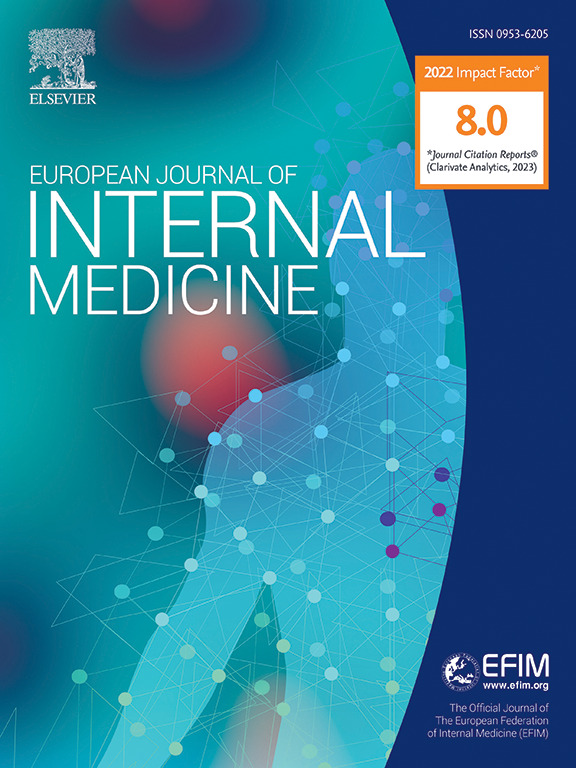Ultra-processed foods and cardio-kidney-metabolic syndrome: A review of recent evidence
IF 5.9
2区 医学
Q1 MEDICINE, GENERAL & INTERNAL
引用次数: 0
Abstract
The rapid increase in the consumption of ultra-processed foods (UPFs) has become a significant global public health concern. UPFs are typically high in unhealthy fats, refined sugars, sodium, and other additives while being low in proteins, fibers, and other essential nutrients. Their high glycemic index and glycemic load lead to blood sugar spikes, contributing to metabolic dysregulation. Emerging evidence links UPF intake to the development of the cardiovascular-kidney-metabolic (CKM) syndrome and a higher risk of adverse health outcomes, such as all-cause and cardiovascular mortality. The pathophysiological mechanisms likely involve chronic inflammation, oxidative stress, dysregulated lipid metabolism, insulin resistance, immune dysfunction, and gut microbiota disruption. The adverse effects are even more concerning in vulnerable populations, including individuals with chronic kidney disease, kidney failure, and the elderly. This review article explores how UPF intake contributes to chronic diseases across the CKM spectrum, including cardiovascular disease, kidney disease, obesity, and type 2 diabetes mellitus, while also exacerbating frailty and reducing quality of life. The focus goes beyond risks of individual metabolic complications to address the broader health implications of UPFs on the increased prevalence of multiple coexistent non-communicable diseases, frailty, reduced quality of life, meta-inflammation, metabolic memory, and syndemics, which are particularly critical for the aging geriatric population.
超加工食品与心肾代谢综合征:近期证据综述。
超加工食品消费的迅速增加已成为一个重大的全球公共卫生问题。upf通常含有大量不健康的脂肪、精制糖、钠和其他添加剂,而蛋白质、纤维和其他必需营养素含量却很低。它们的高血糖指数和血糖负荷导致血糖峰值,导致代谢失调。新出现的证据表明,UPF摄入与心血管-肾-代谢(CKM)综合征的发展以及不良健康结果(如全因死亡和心血管死亡)的更高风险有关。病理生理机制可能涉及慢性炎症、氧化应激、脂质代谢失调、胰岛素抵抗、免疫功能障碍和肠道微生物群破坏。在弱势人群中,包括慢性肾病患者、肾衰竭患者和老年人,其不良影响更令人担忧。这篇综述文章探讨了UPF的摄入是如何导致慢性慢性疾病的,包括心血管疾病、肾脏疾病、肥胖和2型糖尿病,同时也加剧了虚弱和降低了生活质量。重点不仅仅是个体代谢并发症的风险,而是解决UPFs对多种共存的非传染性疾病、虚弱、生活质量下降、炎症、代谢记忆和综合症的流行率增加所产生的更广泛的健康影响,这些对老龄化的老年人口尤其重要。
本文章由计算机程序翻译,如有差异,请以英文原文为准。
求助全文
约1分钟内获得全文
求助全文
来源期刊
CiteScore
9.60
自引率
6.20%
发文量
364
审稿时长
20 days
期刊介绍:
The European Journal of Internal Medicine serves as the official journal of the European Federation of Internal Medicine and is the primary scientific reference for European academic and non-academic internists. It is dedicated to advancing science and practice in internal medicine across Europe. The journal publishes original articles, editorials, reviews, internal medicine flashcards, and other relevant information in the field. Both translational medicine and clinical studies are emphasized. EJIM aspires to be a leading platform for excellent clinical studies, with a focus on enhancing the quality of healthcare in European hospitals.

 求助内容:
求助内容: 应助结果提醒方式:
应助结果提醒方式:


